Dear all,
next week will be a week full of events as Prof. Mario Ascheri will talk about Law and Figurative Art (precisely on the Buongoverno frescoes in Siena), Prof. Giorgio Resta, with the help of M° Enrico Maria Polimanti (who will play the piano), about Law and Music and Prof. Vincenzo Zeno-Zencovich about Law and Cinema. Here some information about each class:
7th May 2008: Prof. Ascheri, Law and Figurative Art
Abstract
The lectures will stress the unique institutional situation of Sienese context of early XIV century and therefore the meaning of 'Buongoverno' frescoes, with particular attention to the theme of the Justice.
Bibliography
W. Bowsky, A Medieval Italian Commune, Siena under the Nine 1287-1355, Berkeley 1981
R. Starn, The Palazzo Pubblico, Siena, New York 1994, or his The republican regime of the Sala dei Nove in Siena, in his: Arts of power, Berkeley 1992, pp. 11-80
Q. Skinner, Ambrogio Lorenzetti's Buongoverno frescoes: two old questions, two new answers, in "Journal of the Warburg and Courtauld Institute", LXII (1999), pp. 1-28.
C.V.
Legal historian (Universities of Sassari, Siena and now Rome 3, 2001-), advisor of Max-Panck-Institut in Frankfurt and Senior fellow of Robbins collection (Berkeley, Law School) has written on courts and institutions (Bologna 1996), medieval institution (Bologna 1999), laws of Italian Middle Ages (Rome 2000) and city-states (Bologna 2006).
8th May 2008: Prof. Resta (University of Bari) and M° Polimanti, Law and Music
Abstract
At a first look, law & music might appear as one of the most recent and less investigated frontiers of the law & literature movement. To some extent this is true. However, the interface between law and music has also been the subject of important studies in ancient times, in the middle age (one of the first examples is the anonymous treatise of the fourteenth century Ars cantus mensurabilis mensurata per modus iuris) and during the twentieth century. Prominent legal scholars have written about musical estethics and musicology (f.i. Salvatore Pugliatti) and at the same time several important composers and musicians have had a legal training (among the others Carl Philipp Emmanuel Bach, Schumann, Stravinsky).
The most important intersection between the two disciplines is represented by the theory of interpretation. Interpreting and performing a score raises a set of questions involves a range of problems not entirely different from interpreting a constitution, a statute, a regulation, or even a legal precedent. Lawyers have frequently confronted themselves with the theory of musical interpretation, in order to enhance their self-comprehension of the legal techniques of interpretation. Not by chance, we can find the same debates between originalists, intentionalists and contextualists in law and in music as well.
In my lecture I will try to elaborate more on this subject, with the aid of a professional musician (M° Enrico Maria Polimanti) who will illustrate the most important intellectual trends and the practical problems of interpretation day by day faced by a musical performer. I will also approach the subject from a comparative perspective, looking at the different ways in which civil lawyers (Betti, Pugliatti) and common lawyers (Jerome Frank, Posner) have conceived the interaction between law and music.
Readings:
J. Frank, Words and Music, in 47 Columbia L. Rev. 1259 (1947)
S. Levinson, J.M. Balkin, Law, Music and other Performing Arts, in 139U.Pa. L. Rev. 1597 (1991)
T. Hall, The Score as Contract, in 20 Cardozo L. Rev. 1589 (1999)
J.M. Balkin, S. Levinson, Interpreting Law and Music: Performance Notes on "The Banjo Serenader" and "The Lying Crowd of Jewes", 1999
C.V. Prof. Giorgo Resta:
Giorgio Resta is an Associate Professor of Comparative Law at the University of Bari, Italy, where he teaches courses on private comparative law, contracts and intellectual property. He is author of three books and numerous articles on privacy, fundamental rights, contracts and torts in comparative perspective. He edited the Italian translation of Hesselink’s “New European Legal Culture”. His book “Autonomia privata e diritti della personalità” has been selected as one of the best legal books of year 2005 by the Italian “Club dei giuristi”. He is currently serving as member of the scientific board of the Legislative Committee for the reform of third book of Italian Civil Code, appointed by the Italian Ministry of Justice. He is member of the Italian Association of Comparative Law and editor of “Il diritto dell’informazione e dell’informatica” and “Rivista critica del diritto privato”. He received several scholarships from the Canadian Government (Faculty Research Program), the Max-Planck-Institut für Internationales und Ausländisches Privatrecht (Hamburg, Germany), the Max-Planck-Institut für ausländisches und internationales Patent-, Urheber- und Wettbewerbsrecht (Munich, Germany) and the Italian Research Council. He has been visiting scholar in the Yale Law School, the McGill Law School, the Law School of the University of Toronto, the Duke Law School, the Ludwig-Maximilians Universität (Munich, Germany), the Max-Planck-Institut für Internationales und Ausländisches Privatrecht (Hamburg, Germany). In 1995 he graduated with magna cum laude from the University of Rome “La Sapienza”. In 1999 he received his PHD in Private Law from the University of Pisa. He is member of the Italian bar. His principal academic interests are privacy, information property, media-law, contract and legal history.
C.V. M° Enrico Maria Polimanti, pianist:
Enrico Maria Polimanti studied piano and chamber music at the Conservatorio di Santa Cecilia. Awarded of the prestigious Foundation Scholarship of the Royal College of Music, he moved to London where he studied with Yonty Solomon. Once back in Italy he attended courses at Accademia Chigiana di Siena, at the Scuola Superiore Internazionale del Trio di Trieste. He also took part in numerous international master classes given by Dietrich Fischer-Dieskau, András Schiff.
He won several prizes in Italy, among them: Hyperion chamber music competition 2001(first prize), Euterpe 2003 (first prize, also special prize “Duo Binetti”), “Pietro Argento” 2003 (first prize, also “Prize of the Critics”), Seghizzi International Song Competition 2004 (“Prize for best pianist”).
He plays as soloist and in chamber ensembles for numerous Festivals and concert seasons in Italy and abroad, recently: Orchestre International de la Citè Universitaire in Paris, Primavera in musica agli Uffizi and Radio Vaticana. He regularly gives lessons, lectures and lecture-recitals in several schools and associations of Rome, at Università Roma3, St. Petersburg College-Florida and Federazione Italiana di Musicoterapia.
He translated Charles Rosen’s book “Beethoven’s Piano Sonatas” (Astrolabio-Ubaldini, Roma) and recently he has written the essay The Earth has many keys. Emily Dickinson in the italian contemporary music (Mazzanti, Venezia).
He took part in several radio, television and cd recordings. (lately Rossini’s Petite Messe Solennelle for the label “Tactus”).
His solo and chamber music repertoire covers a wide range of works dating from early eighteen century to the contemporary epoch.
9th May 2008: Prof Zeno-Zencovich, Law and Cinema
Readings:
M. Asimow, Embodiment of Evil: Law Firms in the Movies, in 48 Ucla L. Rev. 2000-2001, pp. 1340-1392
D.R Papke, Conventional Wisdom: The Courtroom Trial in American Popular Culture, in 82 Marq L. Rev. 1998-1999, pp. 471-489
Law and the Humanities at Roma Tre
The blog of the "Law and the Humanities" course of lessons at the Roma Tre University (Law Faculty)
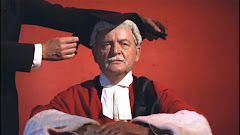
Alfred Hitchock's "Dial M for Murder" (1954)
Sunday, 4 May 2008
Subscribe to:
Post Comments (Atom)

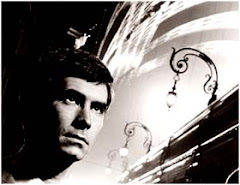


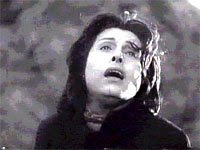
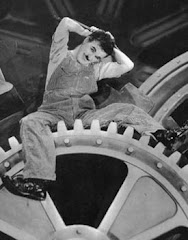
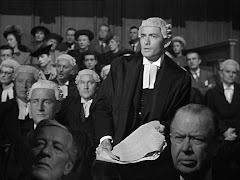

No comments:
Post a Comment